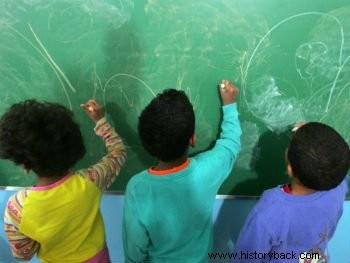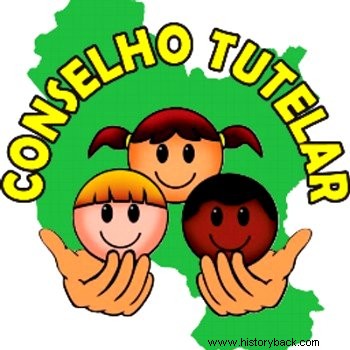The Child and Adolescent Statute - ECA (Law No. 8,069) is a set of specific laws to care for people under 18 years of age living in Brazil.
The Statute was sanctioned in 1990 during the government of Fernando Collor.
Abstract

The Child and Adolescent Statute makes society and the State responsible for the development of all people under 18 years old
The Statute of Children and Adolescents, known by the acronym ECA, provides full protection to Brazilian children and adolescents. Likewise, it establishes the rights and duties of the State and of the citizens responsible for them.
For the Brazilian State, “child” is a person up to 12 years old and “adolescent” between 12 and 18 years old. Exceptionally, in the cases provided for by law, the ECA can be applied to people between 18 and 21 years old.
With the creation of the ECA, children and adolescents begin to acquire rights and duties guaranteed by law and recognized as such.
Therefore, like adults, they are subjects that make up society. However, they are vulnerable in the sense that this phase represents a lot in the social, psychological and physical development of the individual.
Therefore, the importance of the ECA's content must be known by children and adolescents, in order to build a more just and egalitarian society. Thus, everyone recognizes their rights and duties and can fight for them.
What happens in Brazil, since the country has a colonialist history, is the lack of knowledge of the laws on the part of the social group, making it vulnerable to any type of abuse of power.
ECA:rights and duties
- absolute priority to the realization of rights related to life, health, food, education, sport, leisure, professional training, culture, dignity, respect, freedom and family and community life.
- By “absolute priority” it means that the child and adolescent will have preference to receive protection and help, as well as the precedence of attendance in public services.
- No child or adolescent will be subjected to any form of neglect, discrimination, exploitation, violence, cruelty and oppression.
- Parents have the duty to support, guard and educate their minor children. Likewise, parents are obliged to enroll their children in the regular school system.
- The State's duty to ensure that children and adolescents receive basic, compulsory and free education, including for those who did not have access at the proper age.
Guardian Council

The Guardianship Council is a group of experts working to protect children and adolescents.
In this way it is composed of 5 members, who are elected by the community.
According to ECA, the Guardianship Council is responsible for guaranteeing and ensuring the well-being of this group, through the realization of their rights and duties:
Sanctions
The ECA establishes sanctions for parents or guardians who fail to raise and educate their children.
It also provides for sanctions for those children and adolescents who commit infractions. It is provided for from socio-educational measures to hospitalization. This should not last more than three years and should be carried out in a suitable establishment aimed at personal recovery.
To download the updated PDF document:Statute of Children and Adolescents
Origin
The Child and Adolescent Statute aimed to put an end to the Minors Code that had been created during the Military Dictatorship in Brazil.
The ECA arises from the need to end every vestige of authoritarianism that still remained from the military regime. In this way, the deputies discussed the need for a legal system for children and adolescents.
The Minors Code was aimed precisely at disadvantaged classes whose children were treated as potential delinquents. Thus, the repressive state justified the punishment of these minors without committing to improving their living conditions and their social environment.
In this way, the creation of the ECA was an offshoot of the guarantees for childhood and adolescence provided for in the 1988 Constitution.
Read Also :
- Human Rights
- Child Labor
- Child Labor in Brazil
- Infant Mortality
- Children's Day
- Criminal Majority
